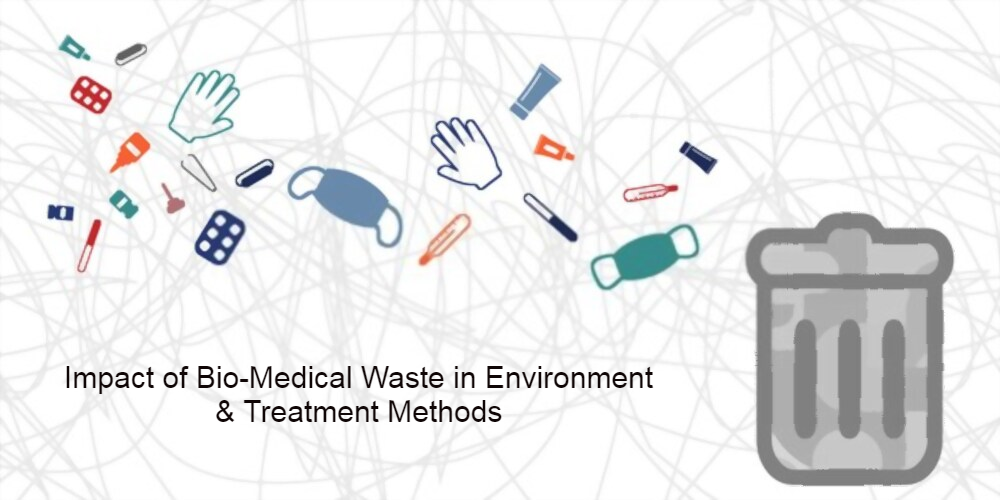Delhi has the greatest daily talk of biomedical waste generation out of the four states and the town is currently producing more waste than its Frequent Biomedical Waste Treatment Facilities (CBWTF) it can deal with.
The current enormous increase in biomedical waste is due to the non-segregation of waste in households and quarantine centers.
What is Bio-medical waste?
It’s the waste generated during the research testing, identification, therapy, immunization or any other medical procedure of human beings or animals.
Bio-medical waste & its impact:
- The Improper direction of medical waste may have both direct and indirect health implications for health employees, community members, and the environment.
- Indirect consequences in the kind of poisonous emissions from inadequate burning of medical waste.
- The most serious impact of biomedical waste is on seas as bio-medical waste discharged into the waters that could be consumed by ocean life animals.
- Individual exposure to such toxins can stunt human development and lead to birth defects.
What measures are needed?
- In order, to ensure the safe disposal of biomedical waste created during therapy, diagnosis, and quarantine of patients using the novel Coronavirus disease (COVID-19), the Central Pollution Control Board of India has come out with particular guidelines.
- Thus, used masks, tissues, head covers, shoe covers, disposable linen dresses, non-plastic and semi-plastic coveralls must be disposed of at a yellow handbag intended for incineration in a common biomedical waste treatment facility (CBWTF).
- The communities need to dispose of their used napkins, tissues, empty sanitizer bottles in a different bag, to make sure the security of municipal workers, and rag pickers.
- It will also ensure that the cycle of garbage collection and plastic recycling does not get influenced.
- The government must also provide safety kits to municipal employees desperately and instruct them on how best to handle household waste throughout the outbreak, to aid in preventing the chain of transmission.
- Urban local bodies must engage the common bio-medical waste treatment facilities (CBWTFs) to pick up such waste directly from such quarantined houses or from recognized collection points.
- BMW Management Rules, 2016- These principles shall apply to all persons who create, collect, receive, store, transport, handle, eliminate, or handle medical waste in any kind.
Tech options for ‘treatment’:
Thermal processes-These procedures utilize heat to disinfect and they operate depending on the temperature.
Mechanical processes-These processes are used to change the physical form or characteristics of the waste to facilitate waste handling or to process the waste together with other treatment measures.
Irradiation procedures -In these procedures, wastes are exposed to ionizing radiation in an enclosed room.
Biological procedures -Biological enzymes are utilized for treating medical waste.
It is claimed that biological reactions decontaminate the waste and trigger the destruction of all the organic components so that just glass, plastics, and other inert will stay in the residues.
Way:
- There’s a need for much better segregation of biomedical waste in families and quarantine centers housing Covid-19 patients.
- The SC has to direct the Ministry of Forests and Environment (MoEF) and CPCB to work out a nationwide bar-coding system (a portal) for tracking of biomedical waste.
- The government should make arrangements for dedicated garbage bins for the disposal of toxic waste such as masks and gloves.



